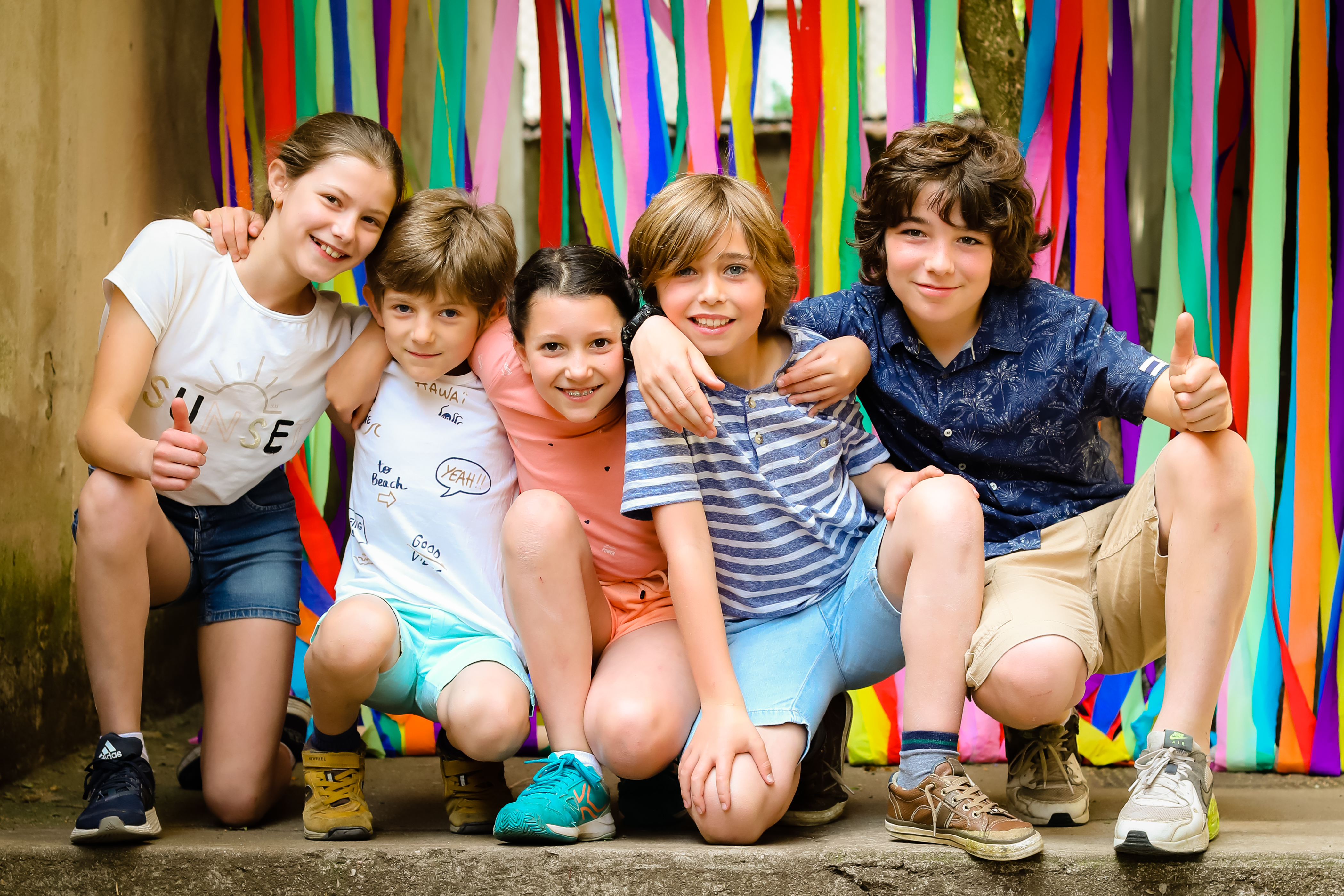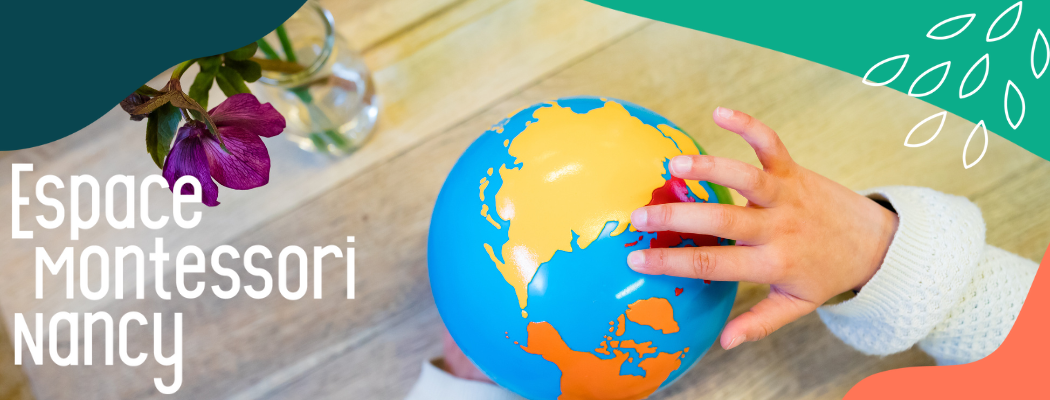The next open day is on the 25th of January 2025, at 2 bis rue de Crédence, Villès-lès-Nancy - France
Montetibou association runs an alternative independent school, without a contract with the French Ministry of Education (but applying for a simple contract), based on the principles of Montessori pedagogy.
The school operates with mixed-age classes. This system favours mutual aid and allows children to learn at their own pace. The school, which is on a human scale, accommodates approximately 80 children aged 3 to 12, divided into 4 ambiences:
- Two early childhood classes, for children aged 3 to 6
- Two childhood classes, for children aged 6 to 9 and 6 to 12
In each one, the children are accompanied by two Montessori-trained guides, an educator and an assistant. A half day per week, the children participate in a dedicated English workshop. This bilingual guide, who is also trained in Montessori pedagogy, eats lunch with the children for a perfect immersion.
.Children find pleasure in coming to school as they are immersed in a nourishing environment. In a reassuring setting, they can go on their own to the activity that corresponds to their pace of development. The child manipulates the material, moves (free movement), creates, explores, observes, and lives! The classroom atmosphere is particularly important, because each child, entirely devoted to what she or he is doing, respects the silence that is conducive to concentration.
What is done in the early childhood ambiences?
For the little ones, it is mainly a question of everyday life (pouring water, watering flowers, sweeping, cleaning a mirror, shining shoes, washing hands, buttoning up, tying knots, combing hair, etc.); beyond the objective interest of knowing how to use things, the child will develop the dexterity and skill that will be necessary for the finer work of further learning (writing, for example).
As the child grows older, it is time for mathematical and language work, as well as all the parallel activities such as geography, music or botany. These can be introduced to the child at an early age, without setting him or her up for failure, since Maria Montessori insists on introducing "one difficulty at a time".
Children become interested in letters and sound at an early age. After having worked on breaking down a word into sounds, the child will learn the sounds of the letters (rather than their names). This way, they will be able to write and then read very quickly. Concerning the writing gesture, we have created a writing workbook based on the Dumont method. This method relies heavily on good preparation (muscular, positioning, etc.) of the child before he can write his first words.
The role of the educator is to present the material the first time, then to discreetly follow the progress of each child, so as to propose new activities when the child is ready. The educator only intervenes if the child requests it, and does not correct the child, as the material allows for independent correction.
During the day, the children are invited to gather around an activity to be experienced together (singing, cooking, listening to a story, theatre, etc.). The child can also be directly involved in community life: preparation of a snack by children who peel the fruit for all the others.
Being an early childhood student also means:
- A snack of fresh and dried organic seasonal fruit at around 10 am every morning, prepared by the children
- The preparation of bread multiple times a week
- Awakening to music and art
- The total absence of digital tools, but an introduction to algorithms without screens
- Ecological awareness
- Scientific experiments
- Sports during extracurricular time
- Trips to the botanical garden
And the childhood ambiences?
We provide children with rules and a framework, essential for them to grow up safe, autonomous and serene. The prepared environment responds to the needs of the child according to her or his stage of development. In this way, the child becomes autonomous and is an actor in her or his progress. The guides are there to help them develop their potential in a climate of respect and trust. They discover and appropriate the tools of knowledge necessary for their development: reading, writing, vocabulary, grammar, written and oral expression, algebra, geometry, sport, art, music, etc ... They will then discover the world and its laws thanks to history, geography, botany, outings, research, etc... The child builds his or her learning through the manipulation of materials, by stimulating imagination and reasoning.
Little by little, the child moves towards abstraction and develops his or her spirit of synthesis and critical thinking by asserting himself or herself, expressing his or her own ideas and by confronting his or her peers. We offer the child the opportunity to experience social life: working in a group, preparing and giving presentations, taking responsibility (helping the youngest, taking care of the ambience...), and learning to manage conflict situations.
"Education is our only way to build a new world and to build peace", Maria Montessori
The childhood ambience is also:
- A discovery class in a natural setting at the beginning of the year to get to know each other better
- Group outings to the theatre or cinema, to the forest to collect rubbish, camping at the end of the year
- "Small outings" organised from A to Z by the children to find answers to the questions they have about nature, animals, space, crafts, etc.
- Particular attention paid to the writing process thanks to educators trained in graphopedagogy
- Debates, an idea box, to develop "living together" and non-violent communication
- Interventions in early childhood ambiences, to read or present a lecture
- Empowerment through the assignment of tasks concerning life in the classroom (tidying up, cleaning, taking care of plants, etc.)
- Regular letter exchanges with elderly people in EHPAD
- No screen, except for the occasional computer for research purposes
- No homework




